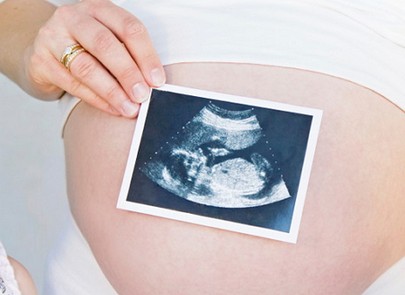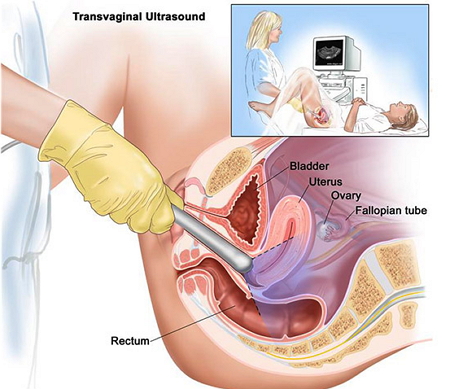Transvaginal Ultrasound During Pregnancy

Contents:
- Transvaginal Ultrasound in Early and Late Pregnancy
- When is Transvaginal Ultrasound Appointed in Pregnancy?
- In What Period is Transvaginal Ultrasound Performed During Pregnancy?
- Methods of Diagnosis
- Precautions
Transvaginal Ultrasound in Early and Late Pregnancy
In one of methods intended for diagnosing pelvic organs in women is transvaginal ultrasound Typically, it is performed along with transabdominal ultrasound in the process of combined ultrasound.
When is Transvaginal Ultrasound Appointed in Pregnancy?
The doctor may recommend a patient to undergo such a study in the following cases:
- to learn the cervical length;
- to determine the form of ovaries and to examine their functioning, in particular in case of female infertility treatment;
- to determine the anatomic structure of uterus: its size, shape, and condition, including the thickness of the endometrium;
- to define various kinds of tumors and cysts;
- along with the surgery of in vitro fertilization at the initial stage, when the doctor extracts a reproductive cell and further when the egg is put in the artificially fertilized environment;
- to detect an ectopic pregnancy, as well as to determine the causes of bleeding.
In What Period is Transvaginal Ultrasound Performed During Pregnancy?

If the gestation period doesn’t have any pathologies, a transvaginal ultrasound is performed from 11th to 14th week. Further, women only undergo transabdominal ultrasound.
Methods of Diagnosis
The woman lies on the couch. The doctor puts a condom on the ultrasound probe and after lubrifying it with gel inserts into the vagina. This procedure is painless, you may only feel pain in case of a severe inflammation.
To locate the organs, the doctor may slightly press on the belly during the procedure. Diagnostics the pelvic area’s organs usually last less than twenty minutes.
Precautions
Undergoing a transvaginal ultrasound, you should take into account the following factors:
- such study isn’t performed if the patient has an allergy to latex;
- during the examination you should be immobile during the appointed by the doctor time.
- the bladder should be empty; the exception is pregnancy.
What are the differences between a transvaginal ultrasound and an abdominal ultrasound?